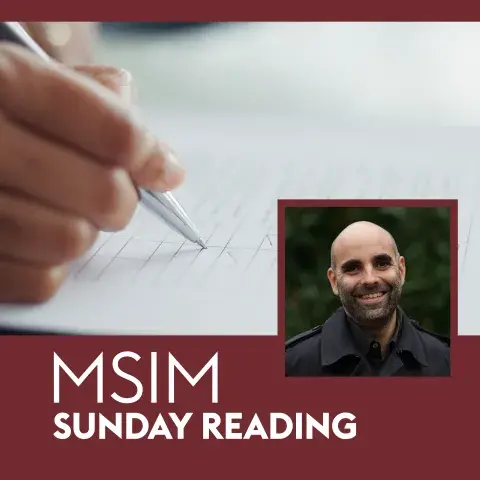
MSIM Sunday Reading is a weekly publication highlighting a current and relevant topic chosen by a professor of the Master of Science in International Management for their courses. The Franklin community gets an inside look at the coursework and specializations offered at MSIM and expert commentary on international issues affecting our world today. This week's MSIM Sunday Reading is in conversation with Oliver Strijbis, Affiliated Professor in Political Science at Franklin. His article explores how field experimentation in the social sciences has evolved and explains how MSIM students at Franklin are given the flexibility to experiment for the improvement of society at large.
About Professor Oliver Strijbis
Oliver Strijbis is an Affiliated Professor in Political Science at Franklin University and a Swiss National Science Foundation (SNSF) grant professor at the University of Zurich. Strijbis received his doctorate in International Affairs and Political Economy from the University of St.Gallen. Strijbis has been head of the SNSF funded research project "The Effect of Campaign Events on Direct Democratic Decisions: Evidence from Forecast Markets", a principal investigator of the research project “Ethnic Voting in Latin America” (funded by the German Research Foundation), head of the research project “Scientific Analysis of the Effect of Ballot Paper Design and List Position on Voting Behavior in the Canton of St.Gallen” on behalf of the State Chancellery of the Canton of St. Gallen, and co-leader of “The Swiss Political Survey Garage”. In his research, Strijbis focuses on elections and direct democratic votes, migration and nationalism, comparative methods and prediction markets.
It is perhaps the most important invention in science ever. The randomized experiment changed everything. Just think of medicine. For centuries, doctors used ineffective treatments, even if counterproductive, to the best of their knowledge and belief. But it was only with controlled experiments that this could be discovered. And more importantly, new treatments could be tested for their effectiveness, leading to the development of medicine and methods that massively reduced mortality and dramatically improved well-being.
While the randomized experiment became established in medicine and the natural sciences around a hundred years ago, it has only been increasingly used in the social sciences since the 1960s. One reason for this is that it is often questionable whether experiments carried out in laboratories produce results that could also be observed in the real social world. This uncertainty makes it all the more critical for the social sciences to transfer the experiment to realistic settings. In these so-called “field experiments,” the procedure is carried out in a real-life situation, which ensures that the results stand up to reality.
Professors Alan Gerber (Yale University) and Donald Green (Columbia University) are the most influential pioneers in using field experiments in the social sciences. In their most famous field experiment, they sent, among others, letters home to a randomly selected group of voters in the state of Michigan, not only telling them that voting was a civic duty but also threatening them that their neighbors would be informed about it if they did or did not take part in the upcoming Governor and Senate elections. Because voter participation in this state is publicly accessible, the two professors were able to show that the argument of civic duty in combination with social control can massively increase voter turnout. (Today, this experiment with 180,000 subjects would probably no longer survive the verdict of any university's ethics committee.)
Based on their years of experience, Green and Gerber have written a textbook on field experiments in the social sciences. The text is an accessible yet rigorous guide to the analysis of field experiments. More importantly, it shows that with a bit of creativity, field experiments on a wide variety of topics in social science are possible. With this in mind, we at Franklin University Switzerland throw our MSIM students into the deep end and let them develop and conduct their own field experiments. In this way, we show our students that conducting experiments is not a distant ideal but can be applied to all sorts of questions with little effort, meaning that many decisions can be based on scientific evidence. In doing so, we ensure that our students become leaders with an excellent understanding of the feasibility of evidence-based decision-making for the good of society.
Alan S. Gerber and Donald P. Green. 2012. Field Experiments: Design, Analysis, and Interpretation. W. W. Norton & Company.
Alan S. Gerber, Donald P. Green, and Christopher W. Larimer. 2008. “Social Pressure and Voter Turnout: Evidence from a Large-Scale Field Experiment“, American Political Science Review 102(1), 33-48.

